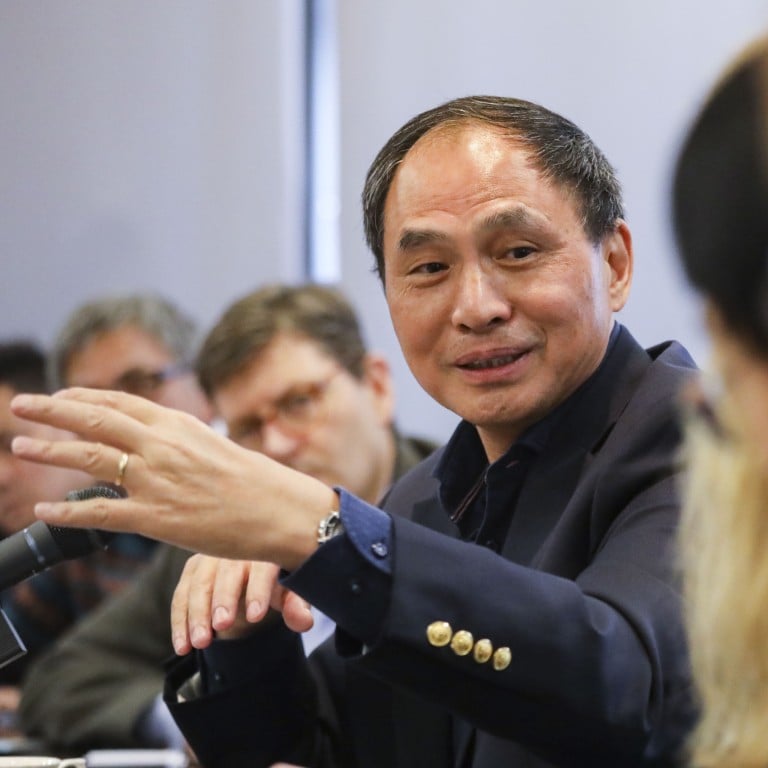
China’s ‘protectionism’ problem at local levels must be quelled, government adviser warns Beijing
- If troublesome trends are not addressed, Beijing’s plans to develop a unified domestic market will be blocked, political scientist Zheng Yongnian says
- ‘Some government departments are unwilling … to be responsible,’ prominent adviser says in flagging ‘shady implementations’ as leadership seeks to invigorate economy
China must come to grips with disorderly competition among its localities – along with an irresponsibly excessive adherence to the old ways of operating – to unleash the nation’s economic growth potential, according to a prominent political scientist who has also called for more economic integration with neighbouring countries.
Zheng Yongnian, an adviser to the central government, also called for “re-establishing” Hong Kong’s role as an international financial centre as he assessed choke points in invigorating the Chinese economy, in an article published on Wednesday.
“While Shanghai as a financial centre serves stability for us, Hong Kong, Shenzhen and Guangzhou should form a bridge to financial services that helps us compete with Wall Street,” said Zheng, who heads the Institute for International Affairs, Qianhai – a think tank based in Shenzhen, just across the mainland border from Hong Kong.
China is looking to invigorate its sputtering economy that has struggled to show a strong recovery in a post-pandemic climate, and growth has been further dragged by Washington’s trade curbs and calls to de-risk from China in the supply chain.
China’s three-legged race to fend off the 4 D’s of an economic apocalypse
Zheng advised China to cultivate new growth momentum, such as through a greater willingness to “be more open and promise higher-quality conditions” when negotiating with the Association of Southeast Asian Nations (Asean) in upgrading an established trade deal.
“Our supply and industrial chain has been extended … we should aim to build a common market with Asean in the future,” Zheng said.
Domestically, while Beijing has been scrambling to roll out economic stimulus and boost investor confidence through measures that aim to unleash consumption potential or relax property restrictions, Zheng raised concerns about the implementation of these policies.
“The central government came up with as many policies as possible to support private enterprises, but when they are being carried out at the local level, there are a lot of shady implementations, and some local practices even go against these policies,” Zheng said.
“Bureaucracy and formalism still prevail, and some government departments are unwilling or do not dare to be responsible, making it hard for policies to yield results,” he added.
Li Qiang vows ‘practical’ cooperation with Asean in bid to reassure neighbours
Zheng said examples of unhealthy competition among local governments, at a time when they are desperate to fuel growth, include attempts to deter businesses from moving to other provinces and making under-the-table deals to meet investment targets.
“There has been a return of local protectionism, and if this trend does not reverse, it would block the development of a unified domestic market,” Zheng warned, referring to Beijing’s development outlook to build more efficient and smoother flows of domestic production factors, including labour, goods, capital and data.
This has seriously affected the global impression of China and China’s business environment
Zheng said China’s economy has also been challenged by American policies that he said have utilised a “cognitive warfare” approach by sending warnings concerning economic struggles while branding China an “uninvestable” place.
“This has seriously affected the global impression of China and China’s business environment,” Zheng said, adding that there has been a spillover effect on the strong US dollar, which he said has been beneficial to the US in terms of attracting talent and resources.
“We should expand such unilateral openness to more areas,” he said. “This is not to do so without having bottom lines, but to identify what is beneficial to us and open up according to our needs.”

